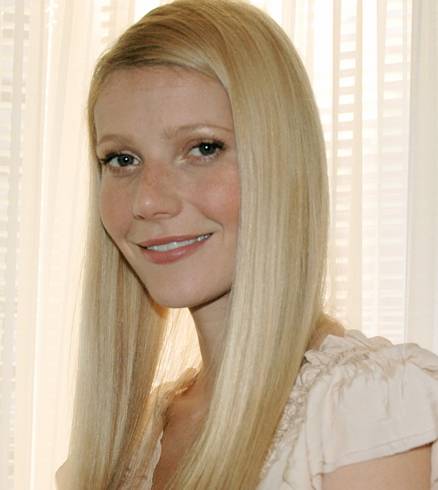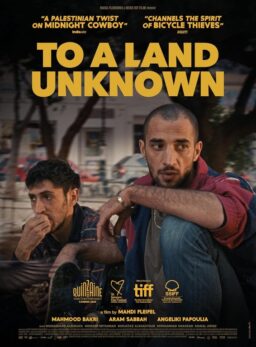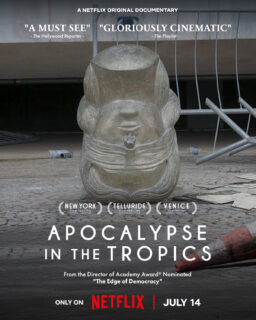Gwyneth Paltrow starred in the stage version of “Proof” (2005), the story of a brilliant mathematician’s equally brilliant daughter. When her father (Anthony Hopkins) becomes mentally ill, she cares for him; after his death, her sister (Hope Davis) and her boyfriend (Jake Gyllenhaal) disagree about her future. Meanwhile, who wrote the earth-shaking mathematical proof found in her father’s locked drawer?
“I don’t know a thing about math but in this movie you don’t need to; it’s clear what the stakes are. After her father’s death, she doesn’t know how to redefine herself. It’s devastating for her to even begin to claim ownership of that proof. She’s fragile. You can see her sister’s point: How can she let my character, who is maybe mentally ill, live along in a filthy house that’s a shrine to their father’s madness?
“They were meticulous in matching the University of Chicago exteriors and the interiors, which were built on a London sound stage. When I saw the University, I was so reminded of Cambridge. I’m sure some people will see that magnificent chapel and think it has to be English, it can’t be in Chicago.”
Heath Ledger has starred in epics and thrillers and has his breakthrough role in Ang Lee’s “Brokeback Mountain,” which just won the Golden Lion at Venice. He and Jake Gyllenhaal play Wyoming ranch-hands, circa 1960, who surprise themselves by making love. They agree “this is no one’s business but ours.” They keep it that way for years, as they marry and start families, but their feelings do not change. “He’s fighting against his genetic structure, and the traditions and fears passed down to him. He’s not comfortable expressing his love to Jack or to his wife; what’s important is his love for his children. I worked to physicalize him. Words had to battle their way out of his mouth. He hated himself for the form of love he had for Jack.
“I never studied acting in Australia. I never had an empty stage and black pajamas to run around and express myself. All of my mistakes are on film. I learn by observing. Ranch hands in Australia are like those in Nevada, gravity pulling down on their shoulders, squinting, walking different after a long time on a horse. They talk without moving their upper lips. I think it’s to keep the flies out.”
Darnellia Russell is a 5-6 basketball guard averaging 30 points per game in the Seattle junior college league. Ward Serrill’s “The Heart of the Game” is about her high school career, when she won two court appeals in order to play; her coach, a bearded tax professor named Bill Resler, guided the team to the state championship her senior year. That’s her mom, April, on the left.
“I started out with low grades, but I changed my attitude and graduated with honors, a 3.6. The girls on the team thought Bill was crazy; he was probably dropped as a baby. He told us we were moose, piranha, wolves, lions—one time we were a tropical storm.
“I played womens’ basketball hoping to get a four-year scholarship but that hasn’t happened. I scored 49 points in one game in the Spokane college tournament. There were some scouts in the crowd. Maybe it will still happen. In our state championship game, Bill wanted every girl to play, and he put in a freshman from the bench with 81 seconds to go and a one-point lead. She scored six points. That’s Bill.”
David Cronenberg is the Canadian master of horror, the macabre and the merely strange. His titles include “The Dead Zone,” “Naked Lunch,” “Dead Ringers” and “Spider.” In “A History of Violence,” Viggo Mortensen plays a small business owner in Indiana, married for 20 years when his violent past catches up with him. It was a big success at Cannes.
“It’s really two movies at once: The first time you see it, and the second time. Then you can see little tones, sounds, that point ahead in the story. Viggo is a serious actor, and the things he does here are subtle; I wonder how many people notice how his accent shifts in the second half of the film.
“William Hurt, as his brother, has a small role, but makes a big impression. He read the script and told me, ‘I think I have some afterburners I haven’t used yet.’
“People say most films are too long. I go the other way. I’m too brutal in the editing. With ‘Videodrome,’ I cut out too much, gave the studio 72 minutes that were totally incomprehensible. New Line asked how long this movie was: 96 minutes. Just long enough.”
Bob Hoskins co-stars with Judi Dench in “Mrs. Henderson Presents,” the story of the woman who owned London’s naughty but heroic Windmill Theater, and the man who ran it for them. The theater presented variety shows with nude models in “artistic poses; censorship laws said they could not move a muscle onstage while naked.
“When I was five, my mom and dad took me to the Windmill. It was a family show. After the war, you’d see Peter Sellers or Spike Mulligan onstage. I knew I was gonna see naked women, but it was treated so naturally I took it in stride. Judi Dench is completely fearless, and will play anything. We were out to lunch to discuss the movie and I said, ‘Judi, in this movie you get to dress up as a Chinese lady and a polar bear.’ She was on board. “Someone once said, ‘Acting is something you should never get caught doing.’ I don’t know who said that. You can put it down to me if you like.”
Charlize Theron heard about “North Country” the week she won the Oscar for “Monster.” She plays a woman miner in Minnesota who in 1983 filed the nation’s first class action lawsuit against sexual harassment. Her director was Niki Caro, of “Whale Rider.”
“Josey Aimes isn’t Norma Rae or Erin Brockovich. She’s soft-spoken, kind of disappears in a room, not a ball-buster, but she found the strength to fight this for 10 years. I grew up in South Africa, raised on hard work and discipline. My mother was in the road construction business. Here I was playing a character like I was raised to be. I look pretty grungy here and even more in ‘Monster.’ I’m not real concerned with how I look. I like films with risk, films in the grey zone.
“Frances McDormand, my co-star, is a gift to cinema. She’s straight from the gut. We agreed we had to be careful with that Minnesota accent. She made it famous in ‘Fargo,’ but we toned it down a little because there was a danger we might get a laugh when it wasn’t supposed to be funny. We stayed kind of neutral.”












